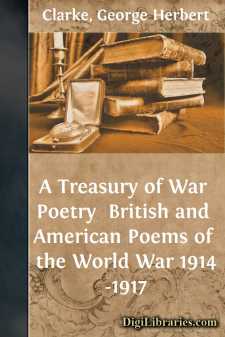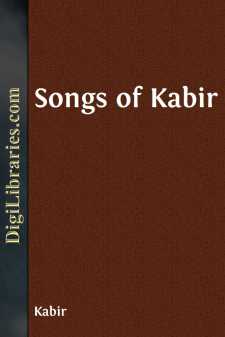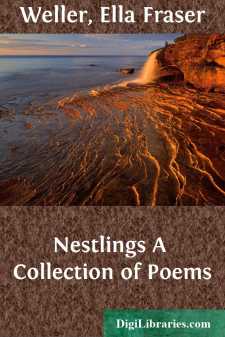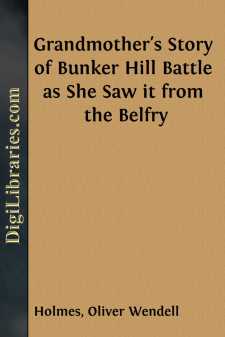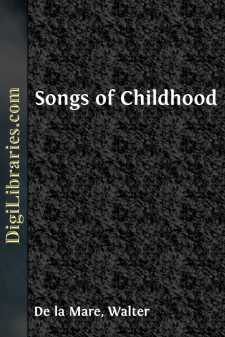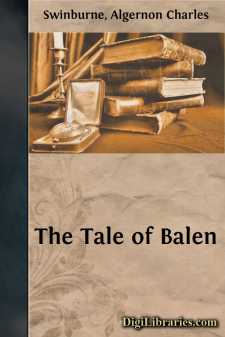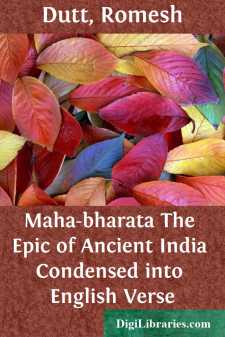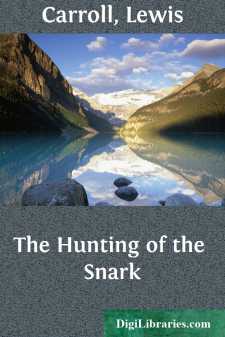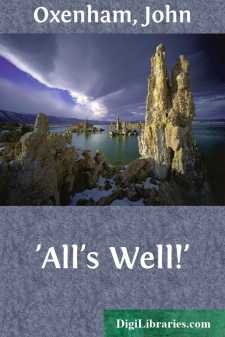Poetry Books
Sort by:
by:
Emily Dickinson
I. LIFE. POEMS. I. REAL RICHES. 'T is little I could care for pearls Who own the ample sea;Or brooches, when the Emperor With rubies pelteth me; Or gold, who am the Prince of Mines; Or diamonds, when I seeA diadem to fit a dome Continual crowning me. II. SUPERIORITY TO FATE. Superiority to fate Is difficult to learn.'T is not conferred by any, But possible to earn A pittance...
more...
INTRODUCTION Because man is both militant and pacific, he has expressed in literature, as indeed in the other forms of art, his pacific and militant moods. Nor are these moods, of necessity, incompatible. War may become the price of peace, and peace may so decay as inevitably to bring about war. Of the dully unresponsive pacificist and the jingo patriot, quick to anger, the latter no doubt is the more...
more...
by:
Kabir
The poet Kabîr, a selection from whose songs is here for the first time offered to English readers, is one of the most interesting personalities in the history of Indian mysticism. Born in or near Benares, of Mohammedan parents, and probably about the year 1440, be became in early life a disciple of the celebrated Hindu ascetic Râmânanda. Râmânanda had brought to Northern India the religious...
more...
My Baby's Feet Within my palm, like roseleaves, dainty, sweet,I fold with tenderest love two little feet—Two little feet, twin flow'rets come to bringTo mother's heart the first sweet breath of spring.Wearied with play, at last they lie at rest,One satin sole against its fair mate pressed.Dear little feet, fain would this hand 'ere shieldThy tender flesh from thorns which lie...
more...
'T is like stirring living embers when, at eighty, one remembersAll the achings and the quakings of "the times that tried men's souls;"When I talk of Whig and Tory, when I tell the Rebel story,To you the words are ashes, but to me they're burning coals. I had heard the muskets' rattle of the April running battle;Lord Percy's hunted soldiers, I can see their red coats...
more...
Preface The Romantic poets rediscovered a pastoral and Biblical dream: that a child was the most innocent and the wisest of us all. Wordsworth hailed him as "Mighty Prophet! Seer blest!" And in the next generation Victorian novelists took that dream seriously enough to make children the heroes and heroines of their most searching fictions. There had been no "children's literature"...
more...
DEDICATION TO MY MOTHER Love that holds life and death in fee,Deep as the clear unsounded seaAnd sweet as life or death can be,Lays here my hope, my heart, and meBefore you, silent, in a song.Since the old wild tale, made new, found grace,When half sung through, before your face,It needs must live a springtide space,While April suns grow strong. March 24, 1896. In hawthorn-time the heart grows...
more...
by:
Romesh Dutt
The scene of the Epic is the ancient kingdom of the Kurus which flourished along the upper course of the Ganges; and the historical fact on which the Epic is based is a great war which took place between the Kurus and a neighbouring tribe, the Panchalas, in the thirteenth or fourteenth century before Christ. According to the Epic, Pandu and Dhrita-rashtra, who was born blind, were brothers. Pandu died...
more...
by:
Lewis Carroll
PREFACE If—and the thing is wildly possible—the charge of writing nonsense were ever brought against the author of this brief but instructive poem, it would be based, I feel convinced, on the line (in p.4) "Then the bowsprit got mixed with the rudder sometimes." In view of this painful possibility, I will not (as I might) appeal indignantly to my other writings as a proof that I am...
more...
by:
John Oxenham
PART ONE: "ALL'S WELL!" GOD IS God is; God sees; God loves; God knows. And Right is Right; And Right is Might. In the full ripeness of His Time, All these His vast prepotencies Shall round their grace-work to the prime Of full accomplishment, And we shall see the plan sublime Of His beneficent intent. Live on...
more...



